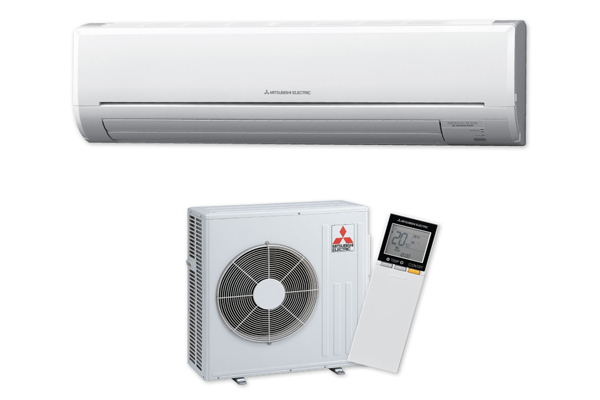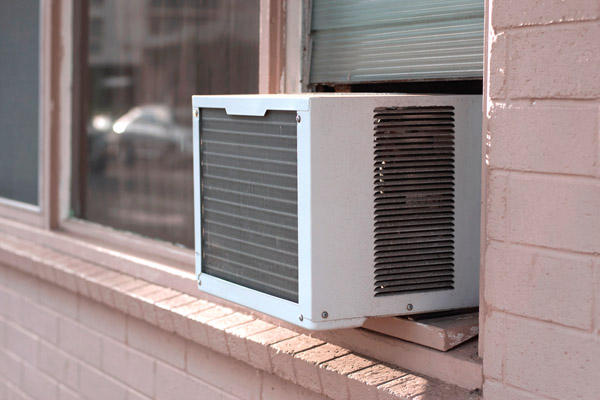Best Ductless For Garage Oakdale NY

Imagine this: it’s the perfect summer day to finish some work in the garage, so you head out, expecting to get some things done. You open the garage door and you are suddenly assaulted by hot, muggy air. If your garage had been closed during the last few days, expect very little ventilation in that space. If you are thinking of getting plants repotted, finishing up some woodwork, or polishing your car, you do not want to work in an enclosed space at high temperatures. You simply will not be able to focus even if you use a fan.
If you want a cool, comfortable environment within your garage, it is better to have an air conditioner installed. In this article, we discuss why homeowners should opt for the best ductless for garage Oakdale NY. We also cover why central HVAC systems and window AC units are not practical options.
Why You Should Choose A Garage Air Conditioner
Table of Contents
- 1 Why You Should Choose A Garage Air Conditioner
- 2 What Are The Drawbacks Of Using Your A Central Air Conditioner?
- 3 How To Keep Your Garage Cool
- 4 A Closer Look At Your Garage Cooling Options
- 5 Ductless System FAQs
- 5.1 How Do Ductless ACs Work?
- 5.2 Is a Ductless MIni-Split System Easy to Install?
- 5.3 Is the Garage the Only Space Where the Ductless System Can Be Used?
- 5.4 Is a Ductless HVAC System Expensive?
- 5.5 Are Ductless Heating And Cooling Units Energy-Efficient?
- 5.6 I Live in an Area That Has Very Low Temperatures. Will a Ductless Heat Pump Work?
- 5.7 Are Ductless Heat Pump Systems Durable?
- 6 Call Hart Home Comfort To Learn More About Ductless HVAC Systems
Garages serve different functions for homeowners. Apart from protected parking space for your vehicles, the garage is also used as an extra storage room, game room, workshop, gym, or even a home office. If space is hot and uncomfortable, you do not want to stay long in your garage. You could, of course, keep the door or windows open while you work but this will only give you an incremental and often negligible level of comfort. With a garage air conditioner, you can expect improved overall comfort. However, you do need to know that there are certain drawbacks you have to watch out for.
What Are The Drawbacks Of Using Your A Central Air Conditioner?

If your house runs on central air conditioning, we recommend that you do not use it in your garage. This is especially critical if you store various chemicals such as petroleum-based products with your vehicles. Should these products evaporate or once you turn on your car, fumes and harmful gases could become mixed with indoor air and enter your ductwork system. Eventually, the toxins could be released to other rooms or spaces in your home.
Another common solution that homeowners have is to use a ductwork extension. While this may seem like a reasonable solution, you should be aware that you could be violating your local housing inspection code. Ductwork extension can also cause strain in your central AC system immensely because it will have to cool an increased volume of air indoors.
Volume
Volume refers to indoor air volume. This is one issue you should never ignore. It is likely that your garage occupies one of the biggest spaces in your house. It also unlikely that it has complete ceilings. Air volume includes all that space between the rafters and the roof. If you do introduce your garage space into your air conditioning system, it is likely that your system will have to grapple with as much as 50% more volume than another same-sized room that has a complete ceiling.
Reduced Insulation

If your garage is not insulated, you will find it difficult to keep it cool. This will happen even if you get a state-of-the-art AC system installed. Should you decide to install an AC system in your garage, make sure the door, ceiling, walls, and windows are insulated. This will help reduce the air volume that the AC system has to cool.
Indoor Air Quality (IAQ)
If you use a central air conditioning system to cool your garage space, it is highly likely your home will suffer from poor IAQ. An air conditioning unit must have a balanced airflow. When it comes to airflow, the basic guideline is simple: for every CFM (cubic flow per minute) of air that flows in, there must be an equal amount of CFM that should flow out. So let’s say you have an AC unit that pushes out 1,200 CFM but pulls in only 800 CFM. It will have to pull the deficit of 400 CFM from other spaces, such as under the walls, the water heater flue, and your garage.
Should your AC unit pull air from your water heater flue, there could be safety risks. While the AC pulls the air down the flue and the water heater happens to be firing, the fumes in the heater won’t move up the heater flue. When this happens, back-drafting occurs. Backdrafting is dangerous because it could release a lethal dose of carbon monoxide into your indoor space. If you inhale this gas, you may suffer from serious health issues. If there is more pressure on the garage, you could still reduce pressure from the rest of your indoor space even if back-drafting does not occur in your gas water heater. Toxic air particles from the garage can still be released into the rest of the house.
How To Keep Your Garage Cool

If garage space is important to you and you use it frequently, you should consider getting an air conditioner installed. However, you should consider a system that is not connected to your central unit. Whatever AC system you choose, it should only be used in the garage. By far the best option you have is either a ductless mini-split, also known as a ductless heat pump. These are excellent choices for your needs because they are energy-efficient and do not require a large amount of space. They are easy to turn off at-need and best of all, they do not require the installation of ductwork. If budget is a major issue, an option would be window type units. However, these are not as effective and efficient, and they also produce more noise. This is why most homeowners do not choose window type units.
A Closer Look At Your Garage Cooling Options
Window Air Conditioner

Let’s be clear about this: while a window AC is still an option, it is not the most viable choice for your garage. It is, however, the most affordable. If budget is a major concern, then this is the option you should consider. A window AC will work well if you only want to lower the temperature by a few degrees.
In terms of practicality, a window or wall AC unit does not offer the best solution for your garage. To accommodate the unit, you will have to cut a hole through a wall in the garage. This is not only unappealing but also a bit tedious. Another issue is that a hole in the garage could be a security issue. If the AC is unsecured and your house is accessible through the garage, a burglar can enter through the AC hole easily.
There is also the issue of inefficiency and noise. Window ACs are not as efficient and you probably know by now that they are not as whisper-quiet as other types of ACs.
Pros Of Window AC Units
- Cheap: Compared to other types of AC systems and state-of-the-art models, window ACs are easier on the pocket.
- Easy to install: If you have basic knowledge and a few tools, you can even install the unit yourself.
- Works on a wall outlet: As long as you use a single unit for one outlet, you do not have to worry about a circuit overload.
Cons Of Window Air Conditioners
- Requires a hole to be cut through the garage wall: If the window AC will not fit in one of the windows, you will have to cut a hole through the wall. Should the unit require a replacement, you will have to find a model that is either the exact same size as the older unit or a bit smaller.
- There is a security issue: The hole can be an entry point.
- Unattractive and noisy.
- Not as efficient: Window ACs may not be able to cool down the garage completely.
- IAQ issues: Window ACs are notorious for encouraging the growth of mold.
Ductless HVAC Systems: Are They The Perfect Choice?
If your region vacillates between extremely hot and extremely cold temperatures, the ductless HVAC system is the best choice for heating and cooling your garage space.
Ductless mini-split systems work much like central air conditioning systems. Ductless units, however, are smaller and more compact. They are equipped with a heat exchanger unit that is installed outside the garage. This unit will be connected to the indoor unit through conduit lines. Cold liquid is transported through the line that will run through the wall through a tiny hole. This liquid cools the air inside the garage. The hole is quite small and will only be a few inches wide. The unit can even be positioned in the most convenient area.
Pros Of The Ductless AC System
- Durable: Compared to central AC systems, ductless systems are built to be robust and durable.
- Very efficient: Ductless systems come with high SEER ratings.
- Improved Comfort: Ranked as very effective in heating and cooling spaces.
- Quiet operation.
- Compact size: They are more flexible in terms of location.
- No security issues: Only a small hole is drilled through the garage wall.
- Year-Round Comfort: Can offer both cooling and heating.
- Effective Design: Optimally designed to deliver the ideal temperature.
Cons Of The Ductless AC System
- Cost: It comes with a higher price tag.
- Installation: Requires a trained expert to install. This system cannot be installed as a DIY project and the technician must be familiar with the make and model of the unit to install it correctly.
- Problems With Removal: It is often a permanent fixture.
Conclusion
If you have a ductless mini-split unit to regulate temperatures in your garage, you will be able to transform and maximize the space you have. With a reliable AC unit, you can enjoy a safe and comfortable space and ensure that you can maintain indoor air quality all year round. If you want to learn more about ductless systems, talk to a licensed and trusted HVAC contractor. Armed with the right information, you can make an informed decision to choose the best option for your garage.
Ductless System FAQs
How Do Ductless ACs Work?
Ductless ACs consist of two components: the indoor air handler and the outdoor heat pump. The air handler distributes conditioned air directly into the garage.
Is a Ductless MIni-Split System Easy to Install?
A trained HVAC technician can easily install a ductless mini-split unit. After drilling a 3-inch hole through the garage wall and connecting the conduit lines between the indoor and outdoor units, the technician will then test the system by running it. The process of installation is fast, simple, and easy, provided the technician is skilled and experienced. In most cases, the unit can be installed within a day.
Is the Garage the Only Space Where the Ductless System Can Be Used?
Ductless units are very flexible heating and cooling options. They are very effective for traditionally “problematic” spaces such as sunrooms, additions, and spaces that have temperature issues. Ductless systems can even be used as a supplement to an existing central AC system due to their impressive energy efficiency.
Is a Ductless HVAC System Expensive?
The price tag that a system comes with will depend on different factors. There’s the cost of the indoor and outdoor units, the size or capacity of the unit, and the cost of installation. If you are planning a multi-zone set-up, it will cost more.
Are Ductless Heating And Cooling Units Energy-Efficient?
One of the key advantages of ductless systems is that they offer customized cooling. You only turn on the unit if you are working in your garage. When you’re done, simply turn the unit off. Central HVAC systems, on the other hand, cool all spaces, even unused ones. Ductless systems also do not have ductwork. As such, no energy is lost due to leaks that often occur when there is ductwork. In fact, ducted systems often lose as much as 30% of energy through the ducts. Mini-splits also come with high HSPF and SEER ratings.
Ductless systems can also keep your home temperature constant, regardless of whether the units are running at high or low speeds. This can effectively reduce energy issues related to regular cycling.
I Live in an Area That Has Very Low Temperatures. Will a Ductless Heat Pump Work?
There are ductless heat pumps that are designed to be very effective in very cold climates. These are known as extended capacity units. Certain models can offer high-quality performance at very low temperatures.
Are Ductless Heat Pump Systems Durable?
Ductless systems can remain operational for about 20 years, while some well-maintained units can last longer. Of course, this will depend on how often the unit is maintained and cared for, particularly by a professional technician.
Call Hart Home Comfort To Learn More About Ductless HVAC Systems
 Hart Home Comfort offers the best cooling and heating services in the area. We only hire certified technicians who can provide you with excellent HVAC installations, repairs, tune-ups, and replacements. All of our techs have the experience and knowledge to service your HVAC system correctly. We specialize in ductless heating and cooling systems so be sure to call today to find out more information about a ductless mini-split system for your home.
Hart Home Comfort offers the best cooling and heating services in the area. We only hire certified technicians who can provide you with excellent HVAC installations, repairs, tune-ups, and replacements. All of our techs have the experience and knowledge to service your HVAC system correctly. We specialize in ductless heating and cooling systems so be sure to call today to find out more information about a ductless mini-split system for your home.
Hart Home Comfort guarantees competitive heating and cooling service costs in the local area. If you are in need of an HVAC replacement system, we can recommend the best one for your budget and your home. As always, we prioritize comfort, energy efficiency, and indoor air quality. Give Hart Home Comfort a call today to schedule an appointment. We also offer free, in-home estimates.
For any questions about what Hart Home Comfort can do for you, give us a call today. Click here to contact us now or call us at (631) 667-3200 to find out more!
